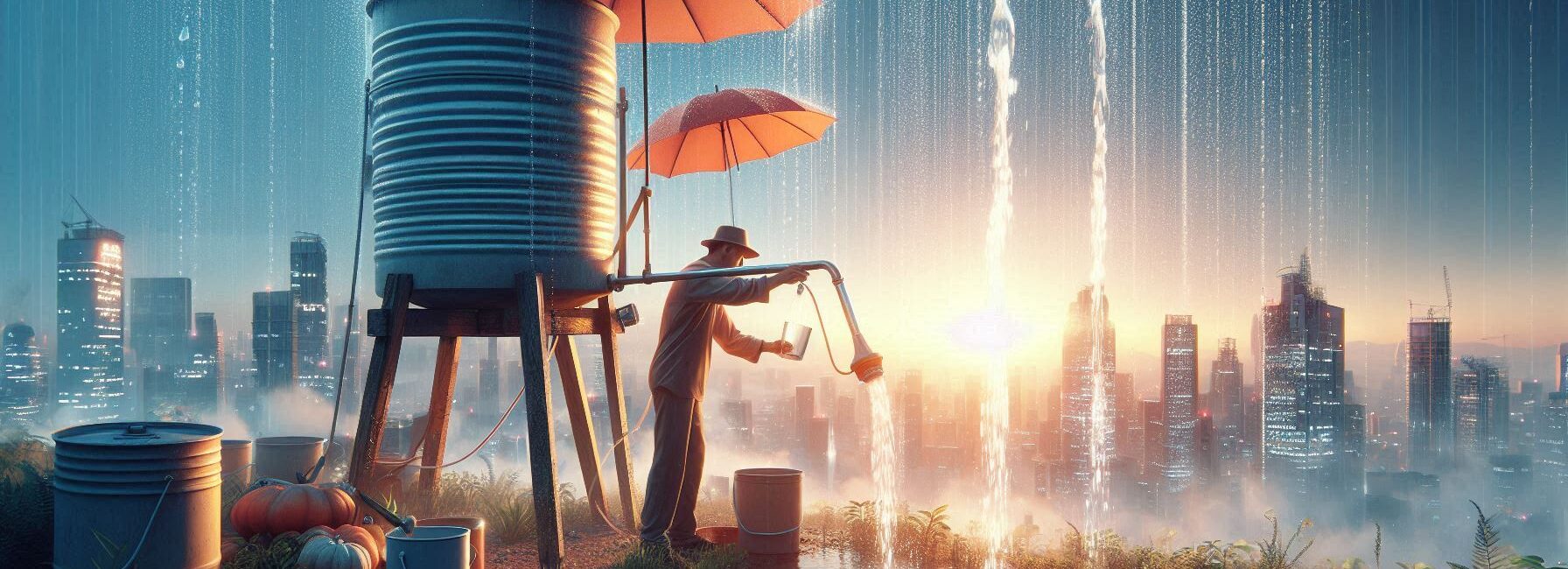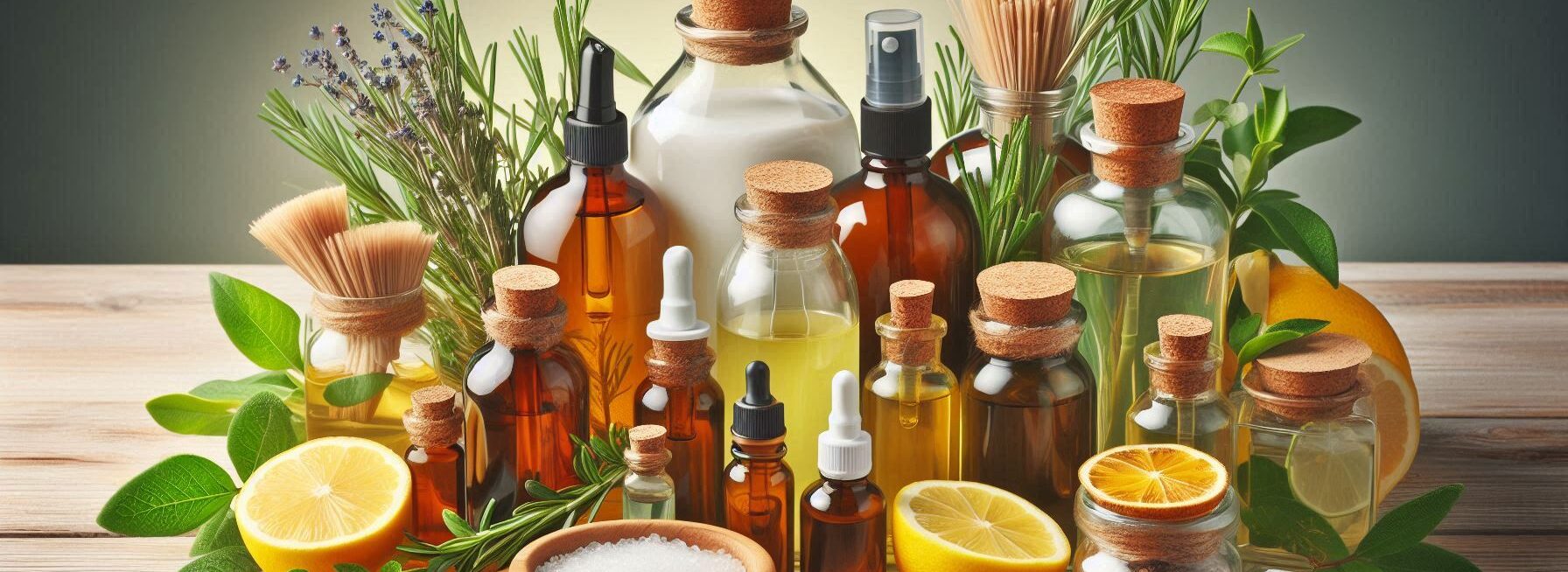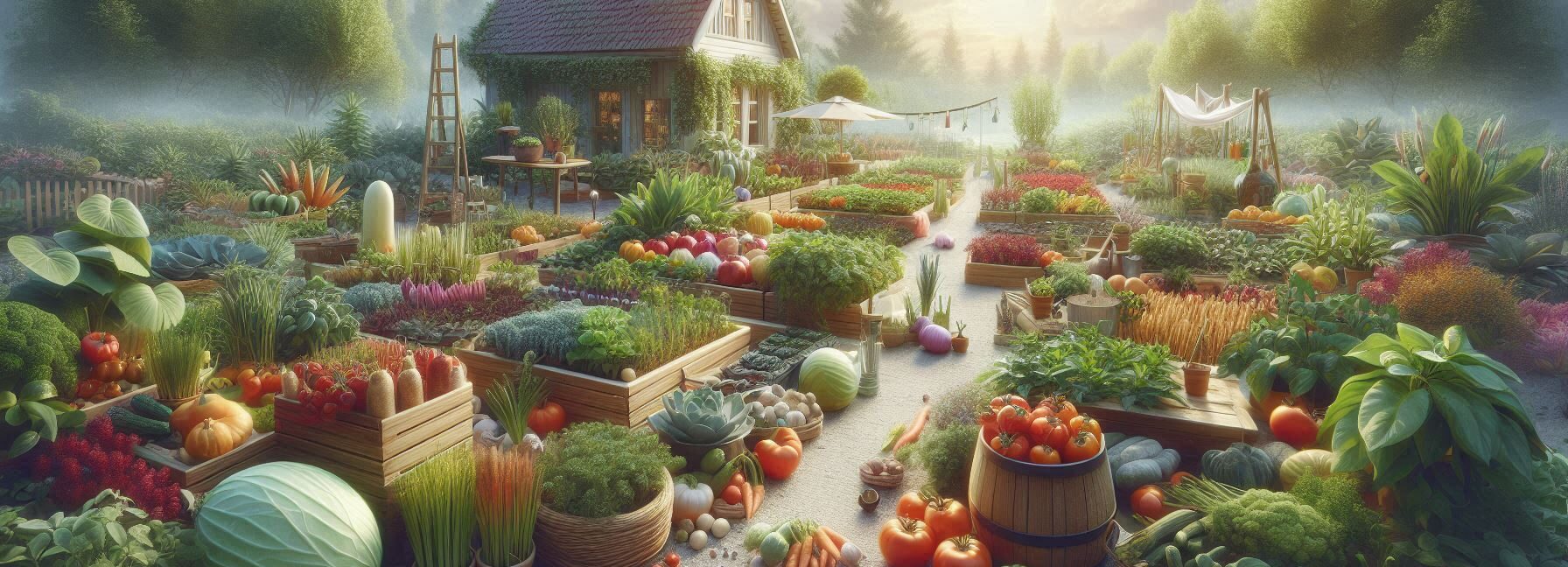Last Updated on November 2, 2025 by Kevin Collier
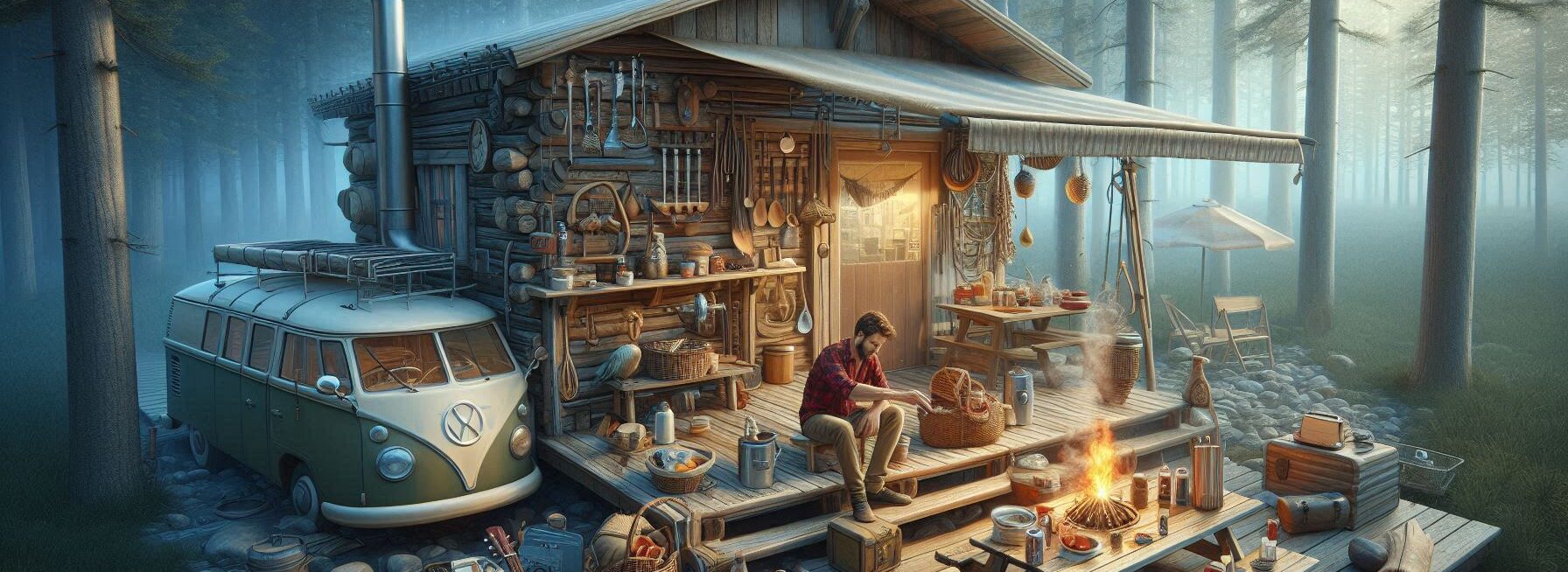
Top Takeaways and Key Concepts
- Learn to start a fire using dry kindling and tinder for warmth and cooking.
- Find and purify water from streams using boiling or portable filtration systems.
- Identify and harvest edible plants safely, avoiding toxic lookalikes.
- Grow vegetables suited to your climate and companion plant to prevent pests.
- Raise small animals like chickens or goats for eggs, milk, and sustainability.
It sounds like the best adventure to live off the grid, doesn't it? Like something from a fascinating survival show where people have to live without Wi-Fi and all the other things we take for granted. Think about how nice it would be to trade your morning commute for a quiet walk in the woods with firewood. How wonderful does that sound?
But wait—don't throw your phone in the river just yet. We still need to check the weather and take lovely pictures, right? If you really want to go rustic, let's speak about certain talents you need to have.
Please Note: This post may contain affiliate links. If you click one of them, we may receive a commission at no extra cost to you. As an Amazon Associate, I earn from qualifying purchases.
You should know how to start a fire. Not just for s'mores! Fire keeps you warm, prepares your food, and keeps bugs away at night. Having fun while practicing this talent is possible. start some dry leaves and sticks and start to work!
Another huge difficulty is finding clean water. You can't just turn on the water anymore. It's really vital to know how to find and clean water. You can boil or filter it, for example. It's like being a wizard of science outside.
Don't forget about growing food. Think about how nice it would be to harvest fresh vegetables from your garden. Doesn't it sound magical? You need to practice a little to learn what to plant and when, but think of the benefits. Also, it feels great!
You will also need to know how to mend things. Living off the grid can mean doing repairs without having to call a repairman. It's important to know how to mend things, whether it's a leaky roof or a broken equipment.
Also, being a part of a community is really vital. Getting to know your neighbors and sharing expertise with them makes the experience so much better. It's like being in a giant family where everyone looks out for you.
Living off the grid can be a lovely trip, but it can also be hard at times. Finding happiness in little things, like a warm fire or fresh vegetables, is what it's all about. Don't forget that it's fine to keep a little touch of modern life in your pocket!
Contents of This Page
*** Shop for Survival Gear - Tools - Kits ***
Survival Gear - Bags and Backpacks - Knives - Boots/Footwear - Communication
Outdoor Cooking - Gloves - Hydration - Dry Boxes - Water Filtration Systems
Tents - Sleeping Bags - First Aid Kits - Multi-Tools - Flashlights - Fire Starters
Navigation - Survival Food - Night Vision - Headlamps - Stun Guns - Binoculars
Understanding Basic Survival Skills
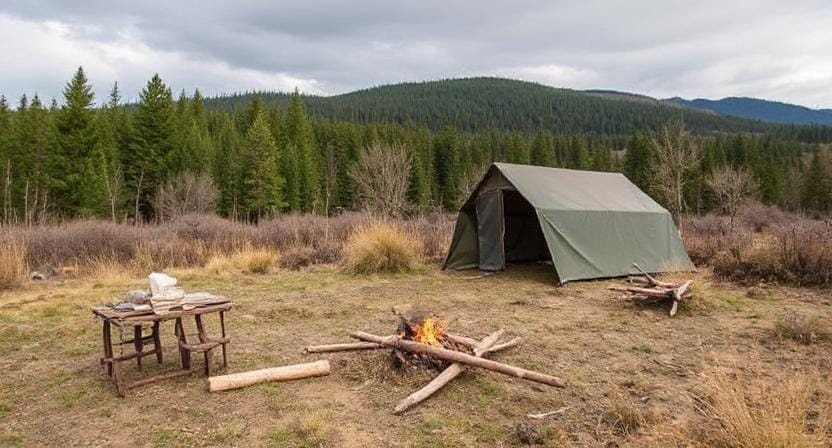
First of all, survival skills aren't just for people on reality TV. By the way, understanding how to build a shelter or kindle a fire can mean the difference between having a nice night under the stars and freezing in your sleeping bag while you think about your life choices. I think we all know which choice sounds best!
Let's have a look… Everyone should know how to build a fire, which is one of those basic skills. It might sound easy to just hit two sticks together, right?
Well, unless you're Bear Grylls, it usually means getting dry kindling, using some kind of tinder (like dryer lint or old newspaper), and then experimenting with matches until you feel like you're learning how to start fires. And to be honest? Nothing beats the feeling of seeing flames dance once you successfully got them to start.
Next, we'll build a shelter! This doesn't mean building a five-star hotel in the woods; it means making something that keeps you warm and dry.
You can make a simple lean-to out of branches and leaves. This is great for anyone who has ever wanted to be a lumberjack without having to chop down trees like they're auditioning for “The Great Canadian Lumberjack Show.”
Finding and Identifying Edible Plants
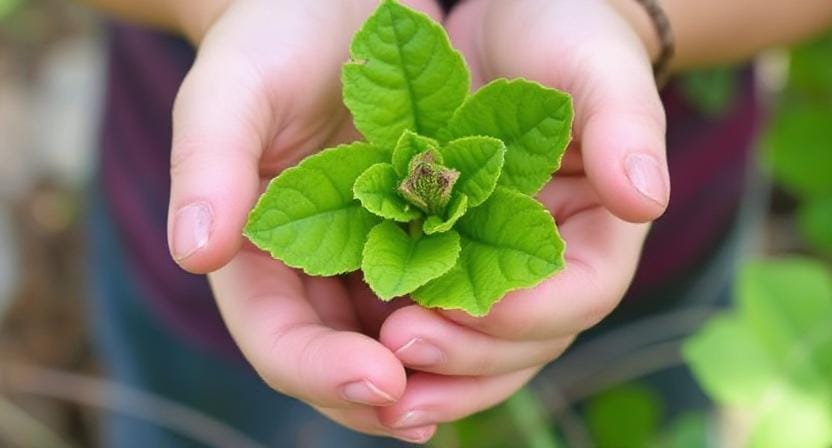
Now that you have a place to stay and a way to cook, let's speak about food! If you live off the grid, it's really important to know how to forage. You could use canned beans from last year, but where's the fun in that?
It's interesting that there are a lot of plants in nature that are safe to eat but need someone bold (or hungry) to find them. But be careful!
Not all plants are nice; others might make you flee for aid faster than you can say “poison ivy.” So it's a good idea to find out which plants are safe and which ones would make you wish you had stuck with canned beans.
When you forage, you also need to know when fruits and nuts are in season. You wouldn't want to go on a long berry hunt only to find out that neighborhood squirrels (who don't seem to care about personal space) had already picked them.
Also, plucking wild blackberries right off the bush is magical—until you learn they're full of thorns!
Finding and Cleaning Water
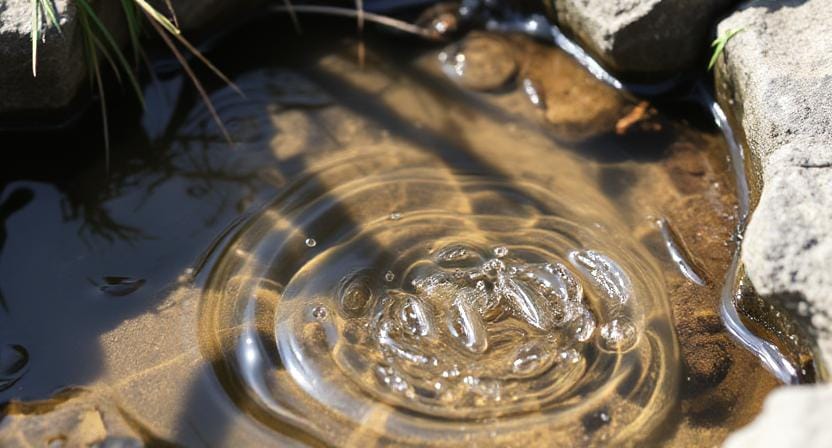
Water is life. It keeps us hydrated on long journeys and helps our gardens grow lots of vegetables. But it's not as easy to find clean water sources when you live off the grid as just turning on a faucet. All things considered, it takes some imagination and knowledge.
You should look for streams or rivers nearby, but keep in mind that not all water is the same! Even while it looks clear, that doesn't guarantee it's safe to drink. Animal poop could have converted your delightful stream into something that looks like swamp juice. What do you do then? It's time to learn how to purify!
One way is to boil water. Just heat it up until bubbles form, as you're making soup without any spices.
You might also buy water filters made just for people who want to go outside. These cool gadgets can change dirty water into clear, refreshing water faster than you can say “thirsty.”
Gardening Skills
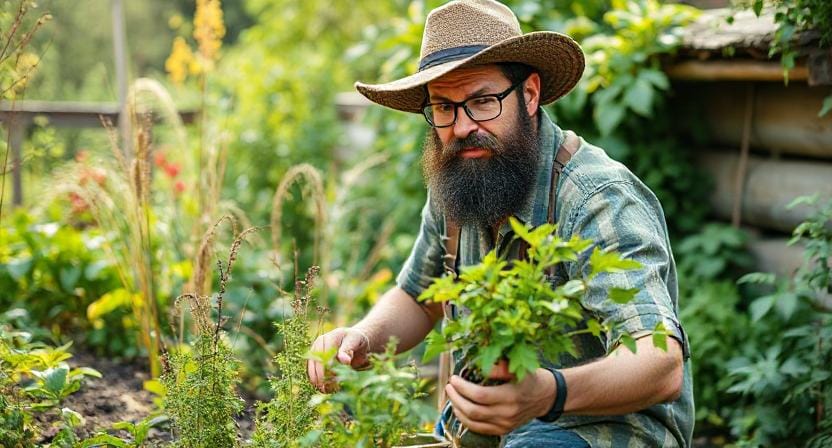
Gardening is your best friend if you want to live off the grid for a long time. Not only can growing your own food save you money, but it also makes sure you're eating fresh fruits and vegetables instead of just relying on scavenging, which might feel more like an episode of “Survivor” than a meal plan.
To start learning about gardening, pick plants that will grow well in your climate zone. For example, if you live in a sunny place with rich soil (lucky you!), tomatoes grow really well and are very satisfying to pick fresh from your backyard.
Also, don't forget about growing plants that go well together! Some plants get along nicely with each other. For example, marigolds keep pests away and help other plants develop. It's like having little bodyguards in the garden who look out for each other!
Basic Animal Husbandry
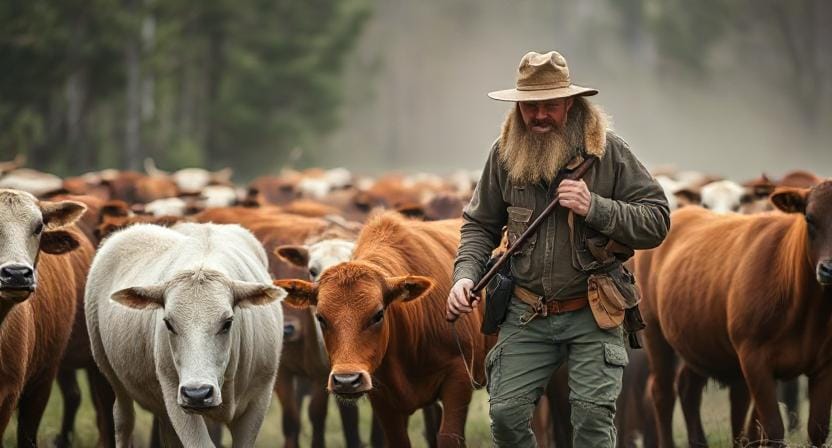
Finally, and this is the bit that gets me very excited, think about getting chickens or goats! These fuzzy friends provide you eggs or milk and make life on the ranch more fun (who knew goats could be so naughty?).
Chickens don't need much space compared to bigger animals, yet they provide limitless entertainment and breakfast alternatives right outside your door. It's a win-win situation if I've ever seen one! Goats are great too; they eat weeds and give you milk, which is not terrible at all!
But here's my favorite part: you'll need to be patient with animals because they don't always want to help you with your homesteading adventures.
These funny anecdotes are great to tell over the campfire later, whether you're chasing after hens that have gotten away or trying to get goats to agree on snack time.
Frequently Asked Questions
What is the most important skill to develop first when living off-grid?
Fire-making is one of the most essential skills because it provides warmth, cooking ability, and protection.
How can off-gridders purify water safely?
Boiling water or using portable filtration systems helps remove harmful pathogens and makes natural sources safer to drink.
Is it safe to eat plants found in the wild?
Only eat plants you can positively identify as edible and avoid any lookalikes that could be toxic or unsafe.
What food sources can be produced at home off-grid?
You can grow vegetables suited to your climate and raise small livestock like chickens or goats for eggs and dairy.
Why is gardening valuable for off-grid living?
Gardening reduces reliance on outside sources and gives you steady access to fresh produce throughout the growing season.
How do animals like chickens or goats benefit off-grid households?
Chickens offer eggs regularly and goats can provide milk, helping improve food security and sustainability.
Should off-grid residents still remain connected to community?
Yes, strong neighbor connections help share knowledge, offer mutual support, and make remote living safer.
Suggested Resources:
Raising Chickens 101
https://www.backyardchickens.com/raising-chickens-101
The Ultimate Guide to Foraging
https://www.foraging.com/the-ultimate-guide-to-foraging
Permaculture Principles
https://www.permacultureprinciples.com/

Kevin Collier is a seasoned survivalist and expert in prepping and homesteading, contributing to WiseSurvive.com. With a deep-rooted passion for self-sufficiency and outdoor survival skills, Kevin shares practical advice, strategies, and resources to help individuals prepare for any challenge. His informative articles cover a range of topics, from essential survival techniques to sustainable living practices, empowering readers to thrive in any situation. Whether you're a novice or a seasoned prepper, Kevin's insights will inspire you to take charge of your readiness and build resilience for the future.

